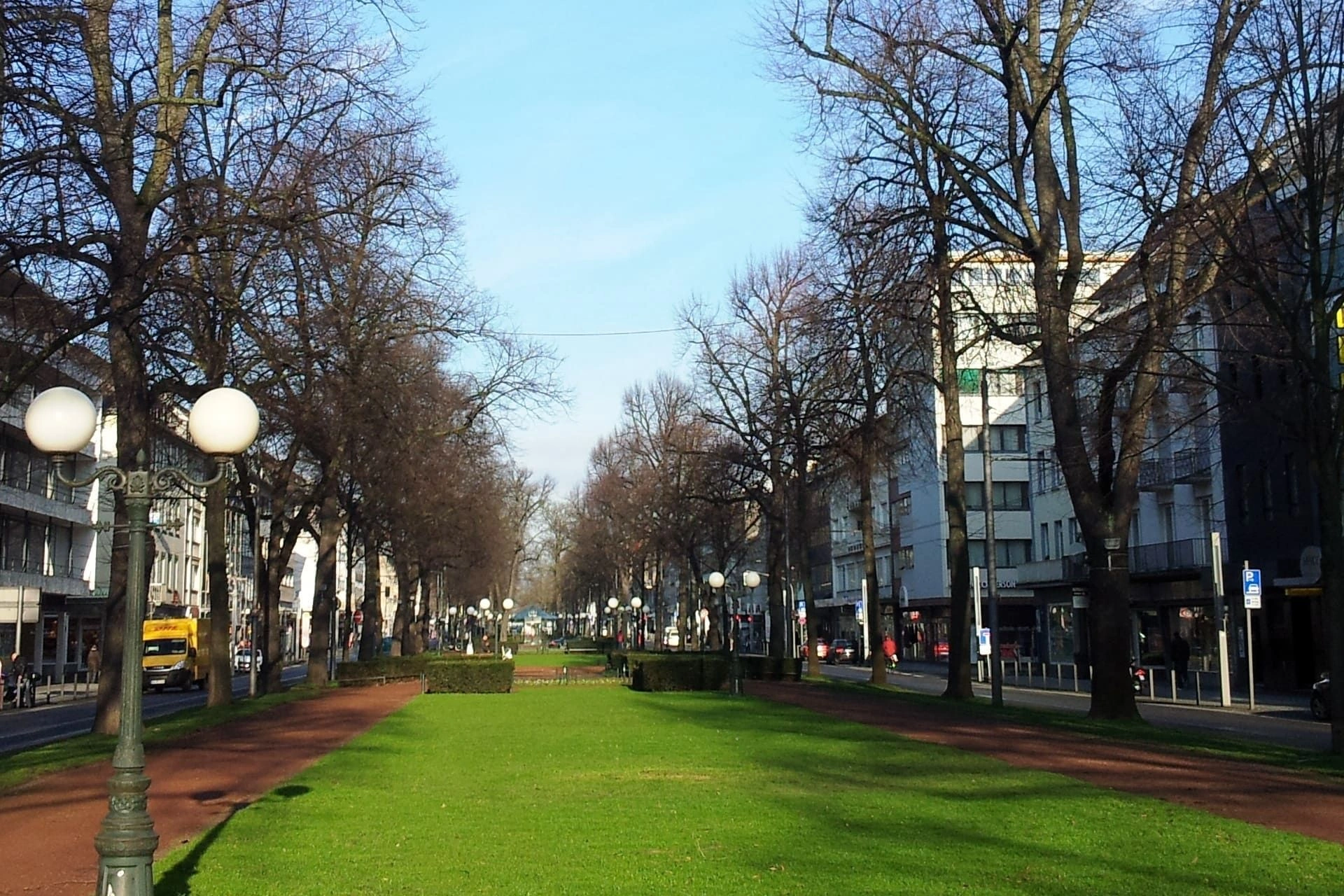Germany Investment Property ListingsCity where history, culture andreinvention live side by side

Best offers
in Germany
Popular
cities and regions in Germany
Benefits of investment in
Germany real estate
Europe’s benchmark for real estate stability
Germany combines rental reliability, low vacancy, and moderate but consistent price appreciation.
Institutional-grade cities with global demand
Berlin, Munich, Frankfurt, and Hamburg attract both local and international buyers and renters.
Clear legal protection and ownership structure
Legal system ensures ownership clarity and strong tenant protections — ideal for long-term investors.
Europe’s benchmark for real estate stability
Germany combines rental reliability, low vacancy, and moderate but consistent price appreciation.
Institutional-grade cities with global demand
Berlin, Munich, Frankfurt, and Hamburg attract both local and international buyers and renters.
Clear legal protection and ownership structure
Legal system ensures ownership clarity and strong tenant protections — ideal for long-term investors.

Useful articles
and recommendations from experts
Investment Property in Germany: Market Trends and Opportunities
Market trends and investment potential
Germany is widely regarded as one of the most stable and secure real estate markets in the world, underpinned by its position as Europe’s largest economy. Known for its strong industrial base, political stability, and high standard of living, Germany offers investors a balanced combination of steady rental yields and long-term capital growth potential. Investment property in Germany appeals to both domestic and foreign buyers due to the country’s diverse economy, transparent legal system, and well-developed infrastructure.
Major cities such as Berlin, Munich, Frankfurt, Hamburg, and Düsseldorf lead the real estate market, each offering unique investment drivers. Berlin, with its growing population and vibrant tech scene, continues to see strong demand for rental housing. Munich, Germany’s wealthiest city, boasts low vacancy rates and high purchasing power, making it ideal for premium residential and commercial investments. Frankfurt, as a global financial hub, has consistent demand for office space and high-end apartments from both expatriates and business executives.
Real estate investment in Germany has proven resilient even during global economic fluctuations. The country’s diversified economy, which includes manufacturing, finance, technology, and logistics, provides a stable foundation for the property market. This stability is further supported by Germany’s status as a safe-haven destination for capital, attracting investors from Europe, Asia, and North America.
Infrastructure development, such as transportation upgrades, urban regeneration projects, and sustainable housing initiatives, continues to enhance property values. With a strong focus on green building standards and energy efficiency, Germany is also a leader in sustainable real estate, presenting additional opportunities for investors targeting environmentally conscious markets.
Types of investment properties
Germany offers a wide range of investment property types, catering to different strategies and budgets. Residential properties remain the most popular, particularly apartments in major cities where rental demand is consistently high. Berlin, for example, attracts young professionals, students, and creatives, while Munich and Hamburg appeal to high-income tenants seeking premium accommodations.
Multi-family apartment buildings are a strong choice for investors looking for stable cash flow. These properties often benefit from long-term leases, high occupancy rates, and diversified tenant bases. In university cities such as Heidelberg, Freiburg, and Leipzig, student housing is a lucrative niche with reliable demand year-round.
Commercial real estate in Germany is equally attractive. Office spaces in Frankfurt’s financial district, Munich’s business hubs, and Berlin’s tech corridors are in high demand from multinational corporations and local startups. Retail spaces in prime shopping streets and malls continue to perform well, particularly in tourist-heavy cities like Cologne and Dresden.
Industrial and logistics properties have gained prominence in recent years, driven by the growth of e-commerce and Germany’s role as a logistics hub for Europe. Warehouses and distribution centers located near major highways and ports are delivering competitive yields and long-term tenant stability.
Tourism-related properties, such as boutique hotels, serviced apartments, and vacation rentals, are also growing in popularity, especially in regions like Bavaria, the Black Forest, and along the North Sea and Baltic coasts.
Legal framework for investors
Germany’s property laws are clear, reliable, and investor-friendly. Both domestic and foreign buyers enjoy the same rights when purchasing property, with no restrictions on foreign ownership. All transactions are conducted through a notary, ensuring legal compliance and protection for all parties involved.
The property purchase process typically involves signing a purchase agreement, conducting due diligence, and registering the title in the local land registry. The notary is responsible for verifying ownership, ensuring the absence of liens, and recording the transaction. This process provides a high degree of security and transparency for investors.
Transaction costs in Germany include notary fees, land transfer tax (ranging from 3.5% to 6.5% depending on the state), and registration fees, totaling around 7% to 10% of the purchase price. While these costs are significant, they are offset by the country’s low risk profile and strong property rights.
Rental laws in Germany are designed to protect tenants, with strict regulations on lease terms, rent increases, and eviction procedures. While these laws favor tenant stability, they also ensure consistent rental income for landlords, as tenants are more likely to remain in properties for extended periods. Understanding the local Mietspiegel (rent index) is essential for setting competitive rental rates in compliance with regulations.
Profitability and rental yields
Rental yields in Germany vary by city and property type. In major cities such as Berlin, Munich, and Frankfurt, yields for residential properties typically range from 2.5% to 4%, reflecting high property values and strong demand. Secondary cities like Leipzig, Dresden, and Hannover can offer higher yields of 4% to 5.5% due to lower acquisition costs.
Commercial properties can deliver yields between 4% and 6%, depending on location, tenant quality, and lease terms. Logistics and industrial properties often generate yields at the higher end of this range, particularly in regions with strong transport infrastructure and growing e-commerce activity.
Capital appreciation potential is robust in high-demand markets. Berlin, for example, has experienced significant price growth over the past decade, driven by population increases and limited housing supply. Munich and Hamburg continue to see steady appreciation due to their strong economies and desirability among both domestic and international buyers.
Investors considering how to invest in Germany should balance yield expectations with the potential for long-term value growth. Well-located properties in cities with strong economic fundamentals and population growth offer the best combination of income and appreciation potential.
Challenges and risk management
While Germany’s property market is stable, investors should be aware of certain challenges. High entry prices in major cities can limit yield potential, requiring larger capital outlays. Strict tenant protection laws mean that landlords have less flexibility in adjusting rents or terminating leases, which can impact short-term returns but supports long-term stability.
Regional differences in property taxes, transaction costs, and rental regulations require careful due diligence before investing. Additionally, competition for prime assets can be intense, particularly in cities like Munich and Frankfurt, where demand consistently outstrips supply.
Risk management strategies include diversifying across different property types and locations, targeting emerging cities with strong growth indicators, and partnering with local experts to navigate regulations and market dynamics. Investors should also consider the impact of potential changes in EU economic policy or interest rates on property values and financing costs.
How VelesClub Int. supports investors
VelesClub Int. provides comprehensive support for investors seeking opportunities in the German real estate market. Our services include market research, property sourcing, legal and tax advisory, and transaction management, ensuring that every investment property in Germany aligns with the client’s financial objectives.
For those seeking rental yields in Germany, we offer property management solutions that include marketing, tenant screening, lease administration, and maintenance. These services are designed to maximize occupancy rates and ensure consistent income for our clients.
We also provide access to off-market opportunities and development projects, including residential complexes, commercial buildings, and logistics facilities. By leveraging our network of local partners, we identify high-potential assets in both established and emerging markets.
Whether your focus is on how to invest in Germany for capital appreciation, steady rental income, or portfolio diversification, VelesClub Int. delivers tailored strategies backed by local expertise and global investment experience. Our goal is to help clients navigate Germany’s competitive but rewarding property market with confidence and success.










